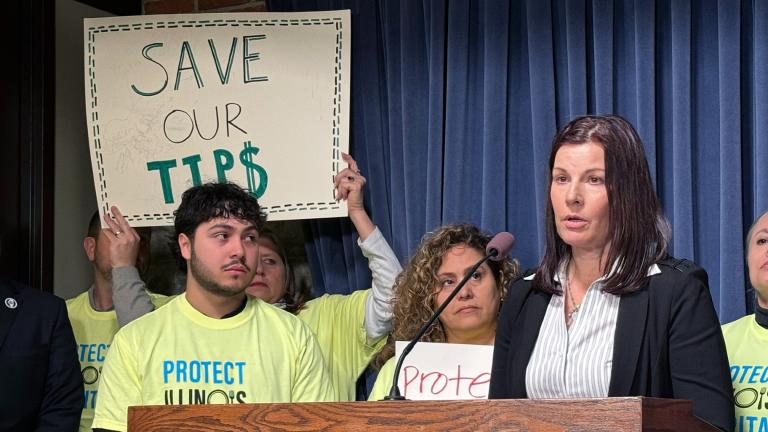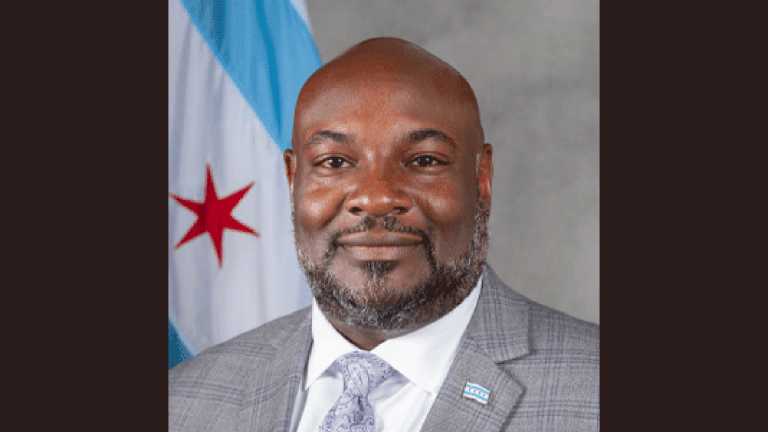 (Tiger Lily / Pexels)
(Tiger Lily / Pexels)
Chicago workers would be entitled to 10 days of paid time off as part of a revised proposal endorsed Thursday by a key city panel after a fierce debate that pitted labor groups and Mayor Brandon Johnson against Chicago’s business community.
The City Council’s Workforce Development Committee voted 12-2 to endorse the plan, which would require Chicago employers to give their workers five sick days and five days of paid time off for any reason as part of a revised proposal that includes one fewer day of sick leave and paid leave as part of a deal that was designed to win the support of a coalition of business groups.
Ald. Anthony Beale (9th Ward) and Ald. Nicholas Sposato (38th Ward) voted against the proposal, which they said would make it impossible for Chicago businesses to stay afloat.
That sets up a final vote by the Chicago City Council, which could come as soon as Tuesday. The proposal is at the core of the labor agenda for Mayor Brandon Johnson, a former organizer for the Chicago Teachers Union, who was elected with the unanimous support of Chicago’s progressive labor organizations.
But the changes negotiated during the past 48 hours were enough to win the backing of the Chicago City Council’s Black Caucus, led by Ald. Stephanie Coleman (16th Ward).
Businesses with fewer than 50 employees will not have to compensate employees for unused paid leave if they exit that position, while businesses that employ more than 50 people or fewer than 100 people will be required to compensate employees for as many as two days of paid leave if they leave the position starting in January 2025.
It would take effect on Dec. 31, and violations could trigger fines of at least $1,000 and no more than $3,000. Starting in 2025, Chicagoans could sue businesses for violations as well, a delay of more than six months as compared with the proposal before the latest round of negotiations.
Ald. Mike Rodriguez (22nd Ward) called the revised proposal a good compromise that ensures Chicago workers can take more sick leave than workers in New York City and Los Angeles and permit them to take time off for any reason, not just if they or a family member falls ill.
However, despite the changes, a coalition of business groups remained opposed to the proposal and blasted the vote in a statement that said the measure was the latest in a series of anti-business measures that would imperil Chicago’s economy.
"Businesses can not withstand the ever-growing financial burden forced upon them with punitive policies including restrictive scheduling, the elimination of tip credits and efforts to quadruple the real estate transfer tax," the coalition led by the Chicagoland Chamber of Commerce said in a statement. "With Chicago on the verge of adopting the most complicated and expensive form of paid leave in the country, businesses of every size and sector will be left with no choice but to take their operations – and jobs – elsewhere."
The original proposal would have entitled Chicago workers to offer their workers one hour of paid leave for every 15 hours worked, regardless of whether they are sick, for a total of 15 days every year.
Deputy Mayor for Labor Relations Bridget Early said the measure would especially benefit Black and Latina women, who often serve as their family’s primary breadwinner, while increasing gender equity in Chicago’s workforce and increasing productivity.
Starting in 2024, a measure signed into law by Gov. J.B. Pritzker will require employers statewide to give their workers at least one hour of paid leave for every 40 hours worked. That will entitle employees to five days of paid time off every year, for any reason, according to the law.
Because Chicago has a separate law, approved in 2016, requiring employers to give their employees paid sick leave, the state law exempts Chicago. Chicago employees earn one hour of paid sick leave for every 40 hours they work, or at least five days every year.
That measure passed after a fierce political battle and has not been adjusted since.
The state law also exempts employees covered by a collective bargaining agreement in the construction industry and parcel delivery industry, and Chicago’s ordinance would not trump labor agreements, officials said.
Contact Heather Cherone: @HeatherCherone | (773) 569-1863 | [email protected]








